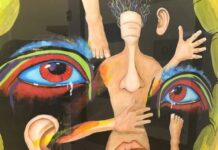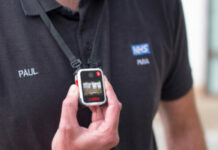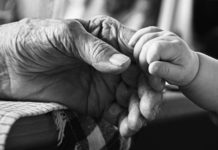Restricting Pharma Reps Contact with Docs Decreases Prescriptions
Implementing policies that regulate pharmaceutical sales representatives’ interaction with physicians may reduce prescription of promoted drugs.
Veterans with both PTSD and Dementia More Likely to be Prescribed Antipsychotics
Researchers found that veterans with both conditions had higher odds of being prescribed second-generation antipsychotics than those presenting with just PTSD.
“It Might Not Be Dementia—How Pharma for Seniors Can Go Seriously Wrong”
For Alternet, Martha Rosenberg discusses the dangers of overmedicating seniors and older adults. She interviews Dr. Harry Haroutunian about his new book, “Not As...
Series on Anti-Psychiatry and Critical Theory for World Mental Health Day
To coincide with World Mental Health Day on October 10th, 2015, Verso Books, the largest independent and radical publishing house released a series of blogs on mental health and critical and antipsychiatry. The posts include pieces on R.D. Laing, colonialism, women’s oppression, delusions and art, “The Happiness Industry,” and social and institutional oppression.
International Research Team Proposes a New Taxonomy of Mental Disorders
New data interpreted to suggest a hierarchical, dimensional system of mental disorders will aid future research efforts and improve mental health care.
“Please Be Normal!” My Experience Working for NAMI
At my job with a NAMI affiliate, I heard daily from people who looked at family members with “mental illness” as non-people, non-human, the “other.” In the office, it was no different. If NAMI had a tagline, it would be “Please be normal like us.”
Economic Deprivation and Social Fragmentation Drive Suicide Rates in US
Major study finds that economic deprivation and a lack of social capital are driving increasing rates of suicide in the U.S.
Blaming Mental Health Won’t Solve Gun Violence, Says APsaA
According to a new statement released by the American Psychoanalytic Association (APsaA), the causes of firearm violence are complex and multifactorial, and gun violence...
“Chantix: For People Who are Dying to Quit Smoking”
A four-part series from Canada Free Press on Pfizer’s smoking cessation drug Chantix and its connection to violence and suicide. “The 26 case reports included three actual suicides. In every case, the acts or thoughts of violence towards others appeared to be both unprovoked and inexplicable. Most of the perpetrators had no previous history of violence, and most of them were middle-aged women—not a group known for its propensity towards violent behavior.”
The Impervious Surface of Professional Help: A Letter to My Therapist
Why is it that members of the community who have no formal education in psychology or counseling or therapy like myself are receiving more training in compassion and effective responses to the public health crisis that is suicide than “professionals?” My coworkers at the crisis center are far less pathologizing, cold and judgmental than those with licenses to “help.”
Researchers Find Brief Intervention for Preventing Self-Harm Ineffective
“These interventions also have the potential to increase rumination and negative affect, and potentially self-harm repetition, by serving as unhelpful reminders of negative experiences in the lead-up to the index self-harm event or during hospital treatment.”
Germanwings Pilot Reportedly Had Antidepressants — Many Banned By US FAA
The German pilot who apparently deliberately crashed a passenger plane reportedly had antidepressant drugs in his home, use of which is restricted or disallowed by many aviation regulators.
UK Trials Body Cameras for Staff in Mental Health Wards
From Engadget: An early trial has found that staff-worn body cameras can reduce confrontation and aggressive behavior, including incidents of physical restraint, in psychiatric hospitals.
"If...
NIMH Funding Changes Threaten Psychotherapy Research
The National Institute of Mental Health (NIMH) is increasingly shifting its research emphasis toward attempting to uncover biomarkers for “mental diseases,” which may have dramatic consequences for research and training in clinical psychology. In an article to be published in next month’s Professional Psychology: Research and Practice, Marvin Goldfried outlines how the shift in funding priorities for psychological research is tied to the needs of pharmaceutical companies and the biological model in psychiatry.
Research Finds Parents’ Trauma May Impact Children’s Health
Study uncovers some of the intergenerational consequences of adverse childhood experiences (ACEs).
Sunday Oddity: “How do you diagnose and treat an illness that doesn’t linguistically exist?”
Canoe.ca reports on the doings of Canadian psychiatrist Dr. Stanley Kutcher, previously exposed by MIA Blogger Alison Bass for his role as a co-author...
A Cry
In this piece for Me, Myself and Disability, suicide attempt survivor Chris Coombs challenges the common misconception that people who attempt suicide always regret it and...
Call for Chapters: Deconstructing Stigma in Mental Health
IGI Global is calling for chapters in a forthcoming book, Deconstructing Stigma in Mental Health. The purpose of the book is to provide a historical context...
Beyond the Hysteria, What “13 Reasons Why” Gets Right
From Medium: "13 Reasons Why," the most-watched series in Netflix history, raises many important real-life concerns that need to be addressed, such as the impact...
Researching the Link Between SSRIs and Violence
In 2010, my 25-year old son was prescribed Prozac for depression. After a psychiatrist doubled his dose, my son became acutely psychotic and had to be admitted to the hospital. Over the next twelve months, during which time he was treated with antidepressants and neuroleptics, my son had five further psychotic experiences. I thought it might be that my son was having difficulty metabolising the drugs.
Marijuana and Suicide
A new three-part series from Parents Opposed to Pot explores the link between marijuana and suicide.
Part 1: Marijuana and Suicide, a Growing Risk for Our...
Racism as a Public Health Threat
From Medical Xpress: Racism is a major public health issue that is correlated with physical and mental health problems including depression, high blood pressure, cardiovascular disease, breast...
“Suicide, Mental Illness Risks Increase During Recessions”
The latest economic recession led to a spike in diagnoses for mental illnesses, suicide attempts, and suicide, according to report out of the University...
Belief in a Favorable Future May Undermine that Future
People who are more likely to believe that others’ views will change to match their own over time are less likely to engage in actions to facilitate that change
Psychiatry, Society and Stigma: Placing the Blame Where It Belongs
I believe that those who understand psychiatry’s self-serving claims and want to be most effective in a campaign of re-education must never lose sight of the critical role of language in the forming of public opinion. Here I will use the example of stigma to illustrate psychiatry's “War of the Words.”


























